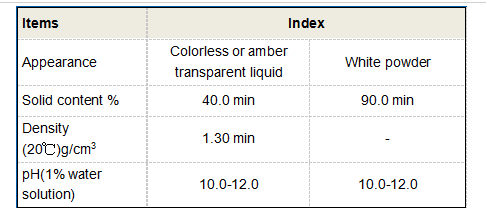flocculant chemicals for water treatment
Flocculant Chemicals for Water Treatment An Overview
Water treatment is a crucial process in ensuring the safety and quality of potable water, as well as in various industrial processes. One of the key components in this process is the use of flocculant chemicals. Flocculants are substances that promote the agglomeration of suspended particles, allowing them to form larger aggregates, or flocs, which can then be easily separated from the water. This article explores the importance, types, and application of flocculant chemicals in water treatment.
Flocculant Chemicals for Water Treatment An Overview
There are two main categories of flocculants organic and inorganic. Organic flocculants include natural and synthetic polymers. Natural flocculants, such as starch and chitosan, are derived from renewable resources and are often biodegradable, making them an environmentally friendly option. Synthetic polymers, on the other hand, are specifically designed to enhance flocculation efficiency and can be tailored to suit various water treatment applications. Inorganic flocculants, like aluminum sulfate and ferric chloride, are widely used and are effective in a broad range of conditions. They work by neutralizing the charges of suspended particles, allowing them to clump together.
flocculant chemicals for water treatment

The application of flocculants varies significantly depending on the type of water being treated. In drinking water treatment, flocculants are used in combination with coagulants to enhance the removal of turbidity and pathogens. Municipal wastewater treatment facilities also utilize flocculants to effectively separate solids and reduce the biochemical oxygen demand (BOD) of the treated water before it is discharged back into the environment. Furthermore, industries such as mining, paper production, and food processing employ flocculants to address specific waste streams and improve process efficiency.
The effectiveness of flocculants can be influenced by several factors, including pH, temperature, and the nature of the impurities present in the water. Therefore, it is crucial to monitor these parameters carefully to optimize the flocculation process. Additionally, there is ongoing research into developing new flocculants that are more efficient, cost-effective, and environmentally friendly.
In conclusion, flocculant chemicals are indispensable in the field of water treatment, serving to enhance water quality by removing suspended solids and contaminants. With a variety of options available, both organic and inorganic, water treatment facilities can choose the appropriate flocculant based on the specific needs of their processes. As water scarcity and quality continue to be critical global issues, the role of flocculants in achieving safe and clean water for all will only become more significant.
-
lk-319-special-scale-and-corrosion-inhibitor-for-steel-plants-advanced-solutions-for-industrial-water-systemsNewsAug.22,2025
-
flocculant-water-treatment-essential-chemical-solutions-for-purification-processesNewsAug.22,2025
-
isothiazolinones-versatile-microbial-control-agents-for-industrial-and-consumer-applicationsNewsAug.22,2025
-
scale-inhibitor-key-solutions-for-water-system-scale-preventionNewsAug.22,2025
-
organophosphonates-versatile-scale-inhibitors-for-industrial-water-systemsNewsAug.22,2025
-
scale-and-corrosion-inhibitor-essential-chemical-solutions-for-water-system-maintenanceNewsAug.22,2025





